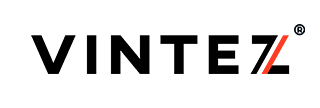
From Screens to Stress: How Eye Health Affects Job Performance
- Blue Light Filter, Fireproof Bags, Privacy Filters
- 01 Oct, 2024
With the rise of remote work and digital collaboration, our reliance on screens has reached unprecedented levels. A Pew Research Center report highlights a significant increase in screen time among U.S. adults, primarily due to remote work. While this technological immersion enhances connectivity and productivity, it also introduces significant health challenges. Prolonged screen exposure is leading to a surge in eye strain and fatigue, which not only causes physical discomfort but also amplifies workload stress and adversely affects mental well-being.
The Hidden Costs of Prolonged Screen Time
Digital eye strain, also known as computer vision syndrome, has become a widespread concern. According to the Vision Council, 60% of American men and 65% of American women report symptoms associated with prolonged screen use, including dry eyes, blurred vision, headaches, and neck or shoulder pain. These physical discomforts significantly reduce concentration and efficiency. According to a study published in Optometry Times, eye strain can cause employees to lose up to 15 minutes of working time per day, which translates into significant productivity losses. These declines in efficiency often necessitate longer working hours to meet deadlines, escalating stress and impacting overall job satisfaction.
Moreover, the mental toll of constant screen engagement cannot be overlooked. The World Health Organization and the International Labour Organization recognize that increased screen time can heighten stress and anxiety, impairing decision-making and cognitive functions crucial for managing workloads.
Blue Light: The Unseen Culprit Affecting Sleep and Stress
A significant factor contributing to digital eye strain is blue light emitted from screens. Harvard Medical School highlights that blue light exposure, particularly during evening hours, disrupts the circadian rhythm – the body's internal clock that regulates sleep-wake cycles. This disruption can lead to poor sleep quality, increased fatigue, and elevated stress levels.
Sleep deprivation not only affects physical health but also impairs cognitive abilities such as attention, memory, and problem-solving. These are critical skills required for managing job demands effectively. Continuous exposure to blue light without adequate protection may also increase the risk of long-term eye health issues, including macular degeneration.
Mitigating Eye Strain: Practical Solutions for the Digital Age
Addressing these challenges involves proactive strategies to create a healthier digital environment. One effective solution is the use of blue light filters, which can significantly reduce exposure to harmful wavelengths, thereby decreasing eye strain and improving visual comfort. This reduction can lead to better sleep patterns and enhanced focus during working hours.
In addition to blue light filters, consider these practical steps:
- Adopt the 20-20-20 Rule: Every 20 minutes, take a 20-second break to look at something 20 feet away. This simple practice relaxes eye muscles and reduces strain.
- Adjust Screen Settings: Modify brightness and contrast to comfortable levels, and use larger text sizes to ease eye fatigue.
- Optimize Workspace Ergonomics: Position screens at eye level and at an arm's length distance to maintain proper posture, reducing neck and shoulder strain.
By integrating these strategies, individuals can alleviate physical discomfort, improve concentration, and better manage their workloads, leading to reduced stress and enhanced job performance.
Creating a Healthier Work Environment Together
In an era where digital devices are integral to professional and personal life, acknowledging and addressing the health implications of prolonged screen time is essential. Employers can play a pivotal role by providing resources and fostering practices that promote eye health. This investment in employee well-being can result in higher job satisfaction, reduced absenteeism, and improved overall productivity.
Implementing solutions like blue light filters not only protects eye health but also contributes to a more positive and efficient workplace. By taking collective action, we can mitigate the psychosocial hazards associated with excessive screen time.
Conclusion
Addressing screen-induced fatigue is crucial for enhancing productivity and well-being in the modern workplace. By adopting blue light filters and healthy screen habits, you can improve visual comfort and effectively manage job demands.
Invest in your health and efficiency by exploring our range of blue light filters designed to alleviate eye strain and support a more productive workday.
Let's collaborate to cultivate a healthier, more efficient work environment for everyone.





